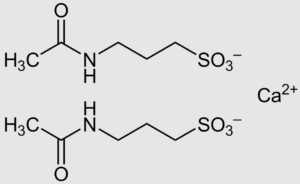Artificial Alcohol: Acamprosate – The Sober Solution for Alcohol Dependence
Imagine a medication that acts like alcohol in your brain, without the intoxication or addiction. Enter acamprosate, the “artificial alcohol” revolutionizing alcohol use disorder (AUD) treatment.
The Science Behind Sobriety
Acamprosate, marketed as Campral, is an FDA-approved medication that:
- Restores neurotransmitter balance disrupted by alcohol dependence
- Modulates glutamate and GABA systems in the brain
- Reduces alcohol cravings and withdrawal distress
How Acamprosate Becomes “Artificial Alcohol”
 When chronic drinkers stop consuming alcohol, their brains experience:
When chronic drinkers stop consuming alcohol, their brains experience:
- Surge in glutamate activity
- Deficit in GABA function
Acamprosate steps in as a stand-in for alcohol, helping to:
- Decrease excessive glutamate activity
- Enhance GABA neurotransmission
- Calm the overexcited nervous system
Impressive Clinical Results
Studies show acamprosate:
- Increases abstinence rates by up to 86%
- Doubles cumulative abstinence duration
- Reduces risk of first drink to 84% compared to placebo
- Has a number needed to treat (NNT) of 7.7 to prevent one additional incidence of drinking
Advantages Over Other AUD Medications
Compared to naltrexone and disulfiram, acamprosate:
- Is not metabolized by the liver
- Can be safely used by patients with liver problems
- Is not impacted by alcohol use
Optimizing Treatment Outcomes
For best results:
- Combine acamprosate with psychosocial interventions
- Start treatment after 3-5 days of abstinence
- Continue treatment for at least 6 months
The Bottom Line
Acamprosate offers a powerful weapon in the battle against alcohol dependence – the familiar neurochemical embrace of alcohol, without the destructive consequences. It’s not just a medication; it’s a second chance at sobriety.